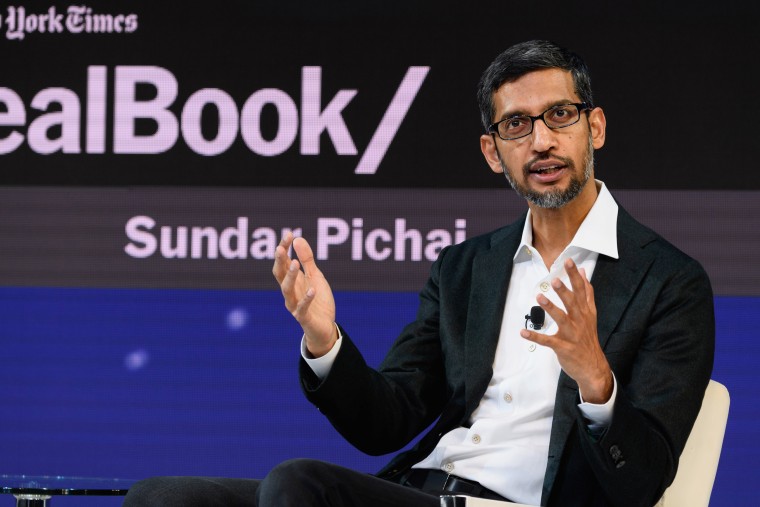Google is making changes to its sexual harassment and misconduct policies — including ending forced arbitration in such cases — a week after a global employee walkout.
CEO Sundar Pichai sent a memo to staff Thursday pledging "more transparency" on how it handles employee concerns and provide "better support and care to the people who raise them." Google "will double down" on its commitment to be a representative, equitable and respectful workplace, he said.
Pichai's letter announced improvements to sexual harassment reporting and training, and emphasized the company’s commitment to diversity. Google will consolidate its channels for reporting misconduct into one site with live support, the company said. It also will provide “extended counseling and career support” for employees making allegations of sexual misconduct.
Organizers of the protests had demanded Google put an end to its policy of forced arbitration for sexual misconduct allegations — a common practice among technology companies that typically takes place behind closed doors and can involve confidentiality clauses. Critics of the practice said it limits workers from speaking out about their experiences.
Meredith Whittaker, the lead of Google's Open Research group, tweeted on Thursday: "Collective action works. It will continue working."
Google said it will also provide more transparency to employees about incidents reported to the company around sexual harassment investigations and outcomes as part of its annual "Investigations Report" and dock employees in their performance reviews if they do not complete mandatory sexual harassment training, Pichai said.
The organizers of the Google walkout wrote in a blog post that the company "made progress" in addressing their complaints but noted that some demands had been ignored, including adding an employee representative to the company's board.
They also said that the company ignored their requests to address issues around "racism, discrimination and structural inequity."
“We demand a truly equitable culture, and Google leadership can achieve this by putting employee representation on the board and giving full rights and protections to contract workers, our most vulnerable workers, many of whom are Black and Brown women," Stephanie Parker, a policy specialist on Google's trust and safety team and one of the walkout organizers, said in the post.
The move comes a week after an estimated 20,000 employees worldwide, including in London, Singapore and the company’s headquarters in Mountain View, California, staged protests following a report by the New York Times detailing how the tech giant protected key male executives and other male workers accused of sexual misconduct.
The Times article revealed that the creator of Google's Android software, Andy Rubin, had committed sexual misconduct. The report said Google gave Rubin a $90 million exit package even after it found the accusations credible. Google declined to comment on details in the Times story.
The walkout was organized in less than a week.

